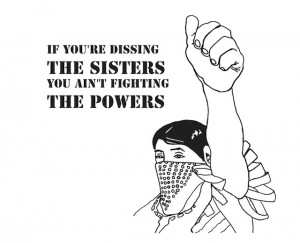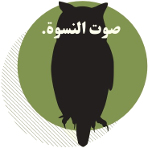
Sometimes it takes a dream to show you how you feel.
Shortly after the July 06 war, I dream that I am taking part in organizing events commemorating the victims and survivors of this latest Israeli aggression. But I discover that Ellen DeGeneres has just died. I walk into my house, and everywhere there are flowers and candles surrounding pictures of the lesbian idol, and teary notes of love written by her mourners from around the world. I want to be sad yet all I can feel is bitter. I try to remind myself that Ellen was not a bad person, that she worked for LGBT rights, and that she probably also identified as a feminist, someone who talked openly about being molested as a girl. But I can’t help it. I am angry that she has died at this particular time, stealing the attention of the world (West?) away from the death of my people.
And I have been spending the next four years of my life refusing to let go of a 33-day- deep rage but trying to not be angry anymore at what is supposedly an alternative america; trying to not be bitter at what is white and gay. White and feminist. White and democrat. I fail over and over again. I don’t want Ellen or anyone to die, but Ellen represents an alternative more liberal america that is still very privileged even when a right-wing movement continuously threatens it. And part of this privilege is that Ellen’s life matters. The life of the alternative liberal white america matters. Evidence continues to show that brown and black lives all over the world don’t.
But the story doesn’t end here.
Because this path of anger that had taken me away from the white, white west has led me to another west, dark and angry too. It is the west of radical women of color in the u.s.
The late Chicana feminist, Gloria Anzaldua, writes that “[i]t is not enough to stand on the opposite river bank, shouting questions, challenging patriarchal, white conventions.” That at some point we need to move beyond reactionary politics and start working towards different possibilities (100-1). That is what this other darker west has given me: a way to not simply critique liberal white middle class america. The works of writers and activists like June Jordan, Gloria Anzaldua, Cherrie Moraga, Winona LaDuke, Suheir Hammad, Nada Elia, Chandra Mohanty, Jacqui Alexander and many, many more, present me with new possibilities. They offer a different reading of history and of geography; a potent critique of mainstream and academic feminism, of colonialism and imperialism, an alternative way of knowing, of writing, of building communities and coalitions. This other west is also the west of white working-class feminists, particularly the anti-racist and the queer. Because their work provides great examples in questioning power and privilege.
“It is not enough to stand on the opposite river bank, shouting questions, challenging patriarchal white conventions.”
My friend Ally is a white working-class queer feminist. She’s part of this other west that Ellen—as a symbol of the liberal middle class america doesn’t speak to. When she read this article, she wrote back to me saying, “in your conclusion, are you going to bring me back to Ellen and the dream? And how Ellen’s consciousness has been co-opted by Disney enterprises, just like queer rights in the US has by the gay marriage activism? And how is this going to connect to actual radical movements working toward justice?”
Part of the “radicality” of any movement, I think, comes from its ability to point to how we are more connected than we first seem to be: how israeli military, for example, is connected to the u.s military is connected to u.s. media is connected to multinational industries and corporations connected to the academy connected to service sectors connected to prisons connected to corporations and industries to the media to the military and the cycle continues.
And the lives and deaths of people of color in the u.s are overshadowed by Ellen as much as the lives and deaths of people of color around the world. So whether we choose to love Ellen as our lesbian idol, or to critique her and the gay (feminist) white america that she represents, we have to make sure that she doesn’t take center stage alone and steal attention away from the black and brown bodies, wherever they exist.
I would like to thank Ally for taking the time to read and comment on this article, and to Samia AbouSamra, who initiated these conversations with me about women of color in the u.s.
Anzaldua, Gloria. Borderlands/ la Frontera: A New Mestiza. San Francisco: Aunt Lute Books, 1987.
Publisher:
Section:
Category:






